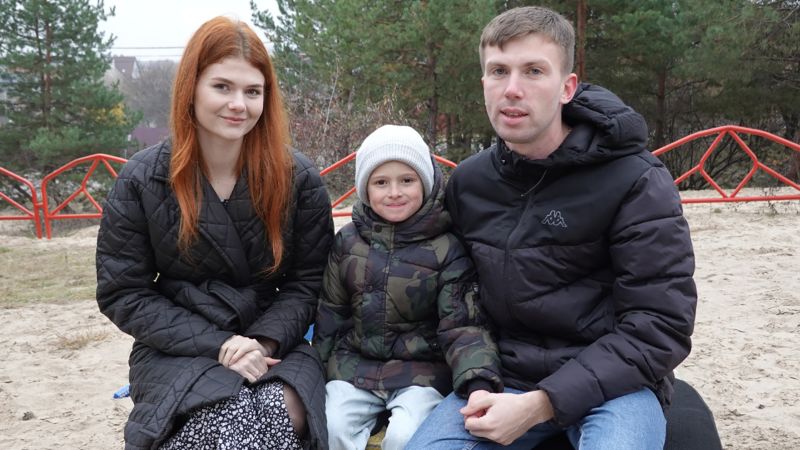BERLIN – After a day of frantic rescue efforts and orders to evacuate cities rapidly filling with water released by severe storms, German authorities said Thursday evening that after confirming dozens of dead, they could not count at least 1,300 other people.
The staggering figure was announced after swift water from swollen rivers swept through towns and villages in two western German states, where the hardest-hit areas said 58 people had died and that more deaths were expected.
As communication was severely hampered, authorities hoped that the missing would be safe if they were inaccessible. But storms and floods have already proven deadly.
At least 11 other people are believed to have died in Belgium, according to authorities who also ordered residents of Liège city center to evacuate as the Meuse, which crosses its center, overflowed its banks.
Storms and the resulting high water also hit neighboring Switzerland, the Netherlands and Luxembourg as a slow weather system threatened to dump even more rain on the flooded area overnight and through Friday. morning.
The weather-related devastation came just days after the European Union announced an ambitious plan to move away from fossil fuels over the next nine years, as part of plans to make the bloc of 27 countries neutral carbon by 2050. And environmental activists and politicians have quickly drawn parallels between flooding and the effects of climate change.
But Thursday’s immediate focus remained rescue efforts, with hundreds of firefighters, emergency responders and soldiers working to save people on the upper floors and roofs of their homes, filling sandbags for stem the rising waters and carry out searches for the missing.
One of the hardest hit areas was the district of Ahrweiler, where flash floods swept through the village of Schuld, sweeping away six houses and leaving several others on the verge of collapse.
With so many people missing, district officials said Thursday evening that the death toll is expected to rise. “Given the complexity of the level of damage, it is not possible for the moment to make a definitive assessment of the situation,” he added. said in a press release.
“We do not have an exact death toll, but we can say that many people were victims of this flood,” Armin Laschet, governor of North Rhine-Westphalia, one of the states, told reporters. hardest hit in Germany. Thursday.
“A lot of people have lost everything they owned after mud flowed through their homes,” said Mr Laschet, who is running to replace Angela Merkel as chancellor in the national elections on September 26.
The floods in North Rhine-Westphalia and Rhineland-Palatinate were among the worst in decades, after several days of steady rain, dumping more water than could be absorbed by the soil and water systems. sewers.
Koblenz police said 18 people died in the badly affected Ahrweiler district where the Ahr river overflowed, flooding the town of Schuld with cloudy pale brown water. Six houses collapsed and several more threatened to give in, police said.
Police urged people to Import images taken from the waves to help them in their research.
District authorities Euskirchen, south of Düsseldorf, said at least 15 people died in the flooding there. Many others were still being rescued, although some villages remained inaccessible. Police in North Rhine-Westphalia have reported at least seven other deaths.
Ms Merkel, who is visiting Washington, expressed her condolences to those who have lost loved ones and thanked the thousands of helpers. She pledged the support of the German government for the affected regions.
“Anything that can be done, wherever we can help, we will do it,” she said, adding that Germany had received offers of help from its European partners.
Hundreds of firefighters worked through the night to evacuate stranded people. Two people died trying to rescue people in Altena, North Rhine-Westphalia, police said.
“Water always runs knee-deep in the streets, parked cars are thrown to the side and garbage and debris collects on the sides,” district spokesman Alexander Bange told Germany. from the Märkische region in North Rhine-Westphalia. DPA news agency
The best comments from today’s readers
-
- Floods in Germany and other parts of Western Europe kill at least 40 people: “I live in the upper Meuse valley in Belgium. After the rains yesterday and last night, torrents of water were pouring down the hills in many parts of the valley this morning. The roads were impassable. I had never seen this before; and we’re not one of the hardest hit places. Yves C., Belgium.
- Tech workers have sworn to San Francisco. Now they are coming back. : “We need dedicated people in San Francisco who call it home. Not just a place for tech workers who travel to Silicon Valley obstructing our streets morning and night with gigantic transport buses. ” Gary, San Francisco.
- Restaurant closed for ‘day of kindness’ after customers made its staff cry: “Having lived in another country, I feel Americans are used to great service and lots of options. This constant feeling of frustration is not doing us well. Catherine, Colorado.
“It’s really, really depressing here,” he said.
Dozens of communities were left without power, while some villages were cut off entirely, police said. Telephone and cellular networks were also down, making it more difficult for authorities to determine who was missing.
Belgium and the Netherlands also experienced significant flooding as the weather system passed through the region. In Belgium, the floods are said to have caused the death of at least two people in the province of Liège, according to the country’s public broadcaster, RTBF.
As the Meuse continued to rise to dangerous levels, regional authorities urged city residents to evacuate and, if that was not possible, to take refuge in the upper floors of buildings. All stores were closed and tourists were urged to leave.
the Belgian Defense Force said he had deployed helicopters and personnel to assist with rescue and recovery efforts amid reports the river was expected to rise several feet, threatening a dam.
In the Netherlands, soldiers were sent to help with evacuations in the province of Limburg, where at least one retirement home had to be cleaned, according to the Dutch newspaper NU.nl.
Heavy rains in Switzerland led the country’s meteorological service to warn on Thursday that flooding would worsen in the coming days. He said there was a high risk of flooding on Lake Biel, Lake Thun and Lake Lucerne, and noted the potential for landslides.
The head of Friends of the Earth Germany in North Rhine-Westphalia linked the severe flooding in the region to what he called a policy failure of state lawmakers. The impact of climate change is one of the hotly debated topics in Germany ahead of the September elections where the Greens are vying for second place, behind Mr Laschet’s conservative Christian Democrats.
“The catastrophic results of the heavy rains of the past few days are largely homemade,” said Holger Sticht, who heads the regional chapter and blamed lawmakers and industry for construction in flood plains and forests. “We urgently need to change course. “
Megan Specia contributed reports.
 Christ Yoder
Christ Yoder
/cloudfront-us-east-1.images.arcpublishing.com/gray/ODYKQRO5GRGJREMXBZNK5UFIX4.jpg)


